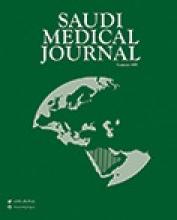Abstract
The objective of this review is to provide a brief background on clinical practice guidelines CPGs and tools to assess and locally adapt CPGs. Over the last 2 decades, CPGs have become an increasingly popular tool for synthesis of clinical information, so as to change clinical practice and improve quality of health care. Such a quantitative growth in the number of guidelines available in different specialties is a source of concern since there is evidence that recommendations produced by different groups can be conflicting, invalid, unreliable, and even harmful. Various critical appraisal instruments were designed and tested to assess whether developers have minimized the biases inherent in creating guidelines and addressed the requirements for effective implementation. We recommend using the AGREE instrument which was developed by the Appraisal of Guideline Research and Evaluation AGREE collaboration. It is the most well-developed guideline appraisal instrument available, and it has been shown to have good reliability and validity. There is a growing recognition that it is not possible for national guidelines to be produced on every clinical problem of concern. The cost is huge and few practices have the resources or skills to develop their own valid evidence-based guidelines. Several developed countries encourage local adaptation of international good quality guidelines to avoid duplication of work and cost involved in guidelines development. Therefore wherever possible, Saudi guidelines should be based on existing good quality guidelines. The methodology for local adaptation of CPGs to meet the local needs and resources are explained in this review.
- Copyright: © Saudi Medical Journal
This is an open-access article distributed under the terms of the Creative Commons Attribution-Noncommercial-Share Alike 3.0 Unported, which permits unrestricted use, distribution, and reproduction in any medium, provided the original work is properly cited.






